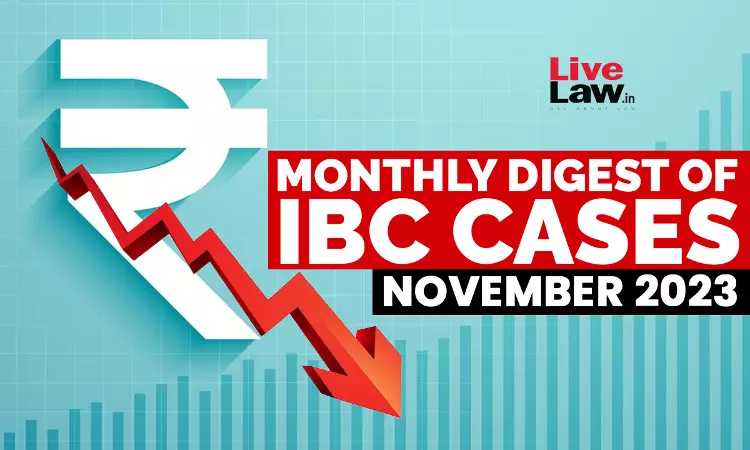Monthly Digest Of IBC Cases: November 2023
Pallavi Mishra
5 Dec 2023 9:00 PM IST
Supreme CourtIBC Resolution Plan Can't Ignore Government Dues: Supreme Court Dismisses Review Petitions Against 'Rainbow Papers' Case title: Sanjay Agarwal v. State Tax Officer Citation: 2023 LiveLaw (SC) 939 The Supreme Court has dismissed a batch of review petitions filed against a 2022 judgment which held that the definition of a secured creditor under the Insolvency...
Next Story



